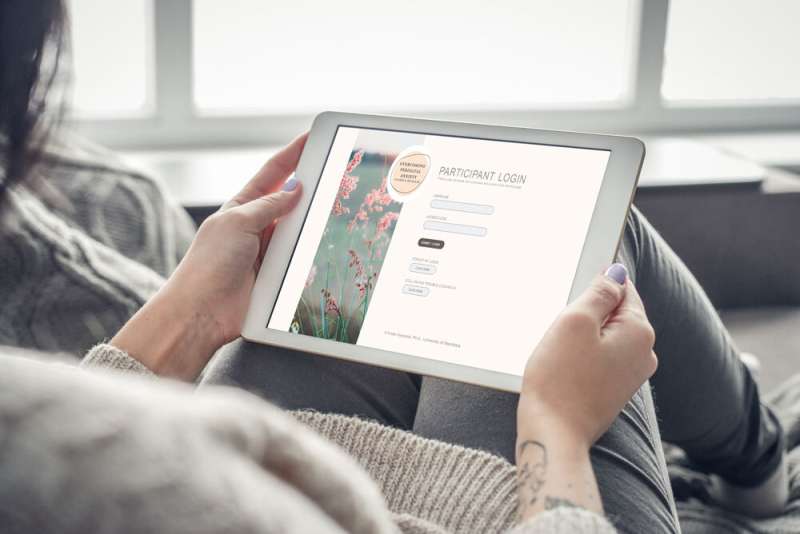Psychologists create free tool to help new parents grapple with anxiety during COVID-19

In the best of times, the degree of worry can be intense, constant, and consuming. Is baby developing ok? Did I have too much coffee today? Should I have eaten that—was there soft cheese in it!? Is that person smoking? Can I lay on my stomach, just for a bit? What if I cannot soothe my baby? What happens if I can't sleep again? The perinatal period—the moment from conception to a year after birth—is marvelous, empowering, and nauseating: from hormones and endless, grating, anxiety. Now add a pandemic to the mix.
The stress of growing and nurturing and protecting a baby is amplified in the context of a global pandemic and clinical psychologist Dr. Kristin Reynolds, an assistant professor in the department of psychology at UM, and her UM colleagues Drs. Patricia Furer and Gillian Alcolado, decided to create something to help quell some of the anxiety new parents are facing in these times.
The UM team created Overcoming Perinatal Anxiety, an evidence-based, self-directed online program to help pregnant and postpartum people gain insight and strategies to manage anxiety during a global pandemic.
"Our program helps people to understand and recognize the signs and symptoms of anxiety and related mental health concerns in the pregnancy and postpartum periods. This is particularly important now, with rising rates of anxiety and depression during the pandemic," says Reynolds, a mother herself and the principal investigator of the study. "Other important topics include self-care (identifying needs and creating space for them), examining the expectations that pregnant and postpartum people are placing on themselves to do and be all things (the myth of the supermom) and challenging these expectations, and developing a relationship with the growing fetus and baby once born."
The free, six-module, cognitive behavioural therapy program builds upon the program Reynolds and her team have been running since 2015 at St. Boniface Hospital and through UM Psychological Services Centre. But now, as researchers, they are curious if their tried-and-true program can be adapted for COVID, both in content and delivery—as many mental health services are filling up, the UM team wanted to design something that could help people now.
"The main issue that led us to develop this program is access. Getting access to evidence-based services now, on a smartphone, tablet, laptop, or computer. We know, from being parents, as well as researchers, that being pregnant and post partum is a wonderful time, but it is also challenging, and wait times for virtual or in-person mental health services can be long. So by offering online programming, we wanted to meet people where they were at and increase accessibility and hopefully decrease rates of anxiety, depression, and improve attachment one has to their pregnancy and their developing baby."
Funded by Research Manitoba, Reynolds and her colleagues will evaluate the acceptability and effectiveness of their program's new iteration: How do pregnant and postpartum people engage with the program and what feedback do they have; and are gains similar in the new self-directed format? The team will then determine if and how it can be rolled out across the country. One idea is to have it supported by local grassroots organizations who can offer virtual peer-support to parents in need.
Indeed, one of the most common causes of anxiety new parents identified during COVID was the lost supports, such as no partners in ultrasound exams, and no grandparents or friends to help babysit.
More information: Evidence-Based, Accessible, No-Cost Online Programming for Perinatal Anxiety: overcomingperinatalanxiety.ca/


















